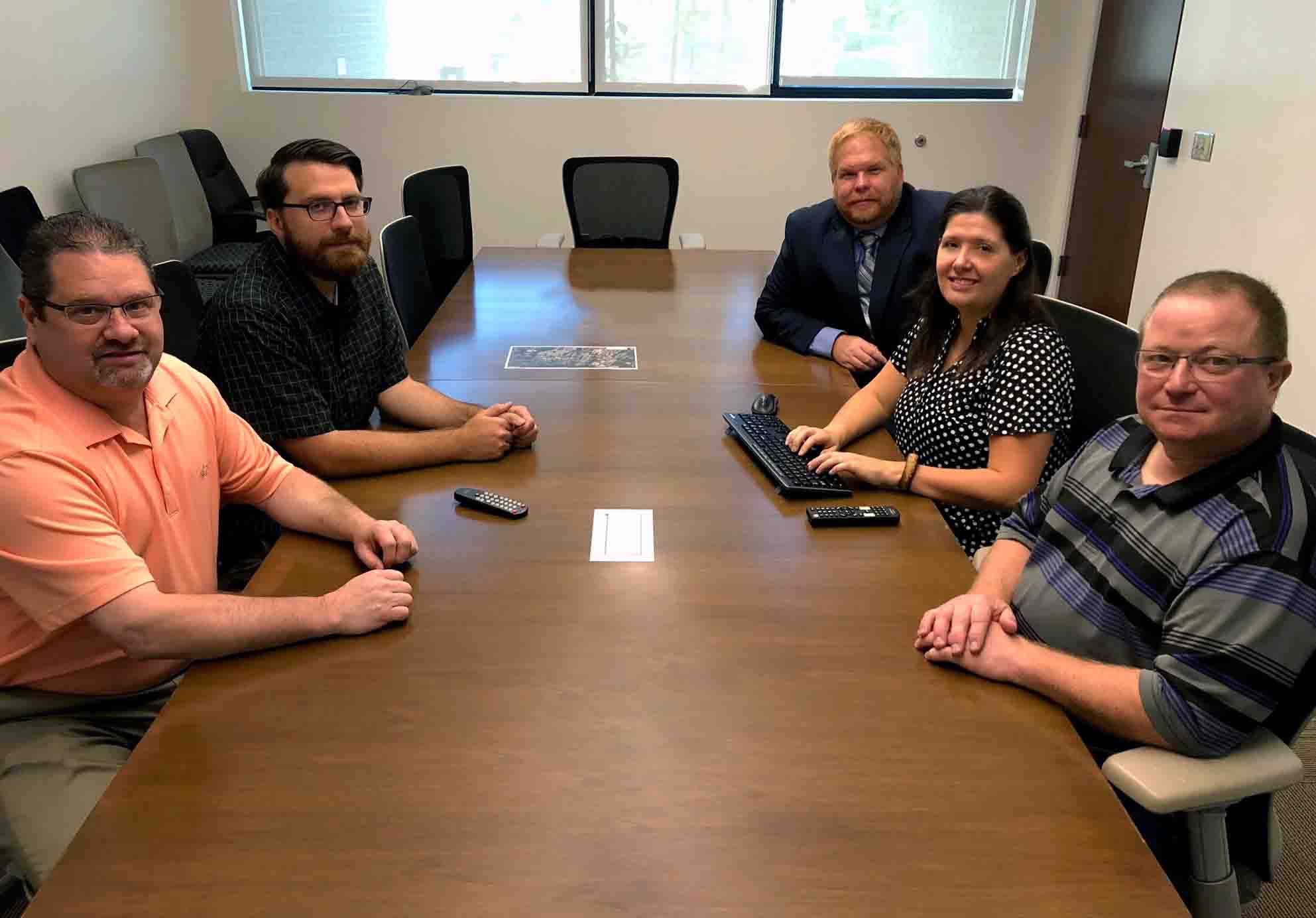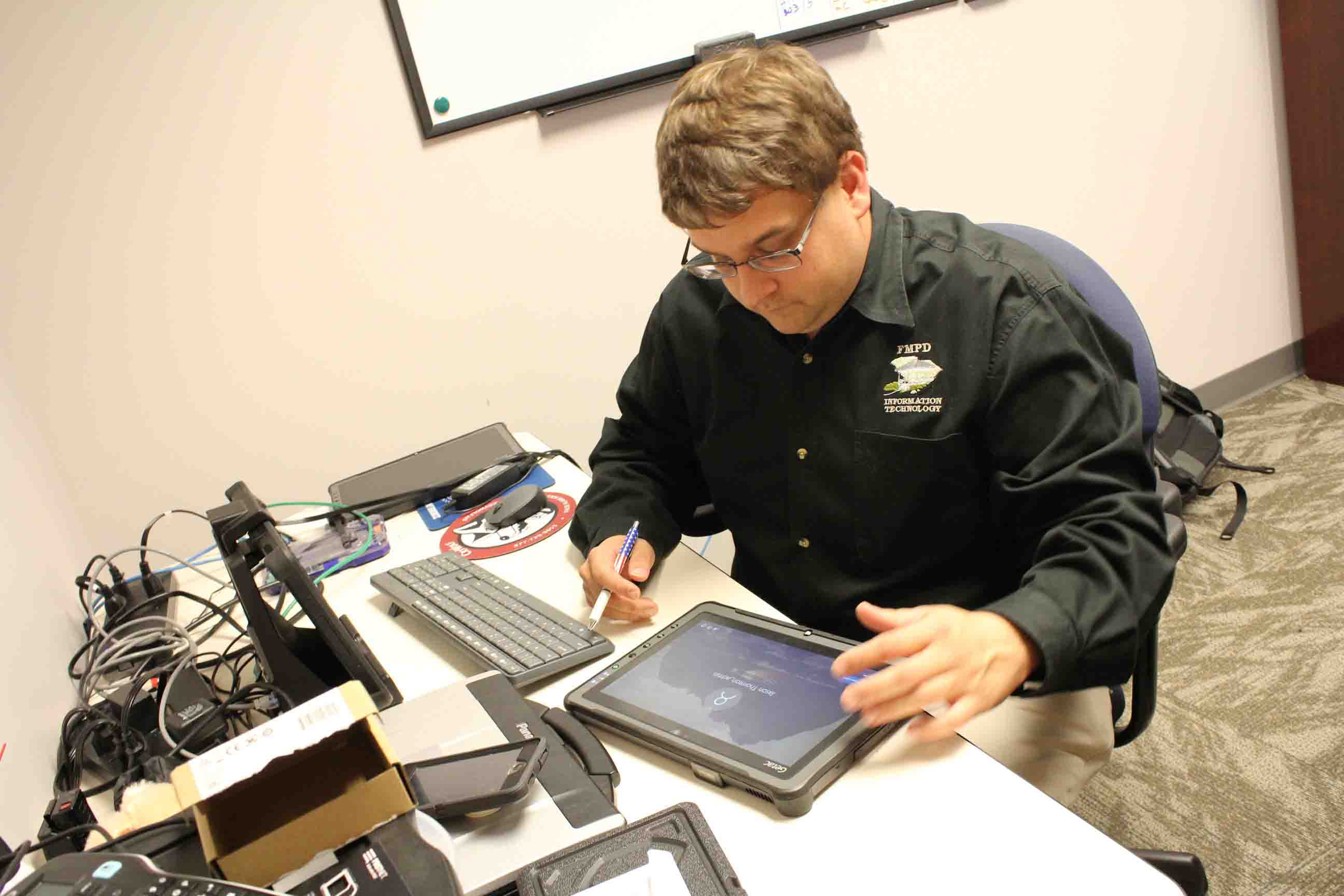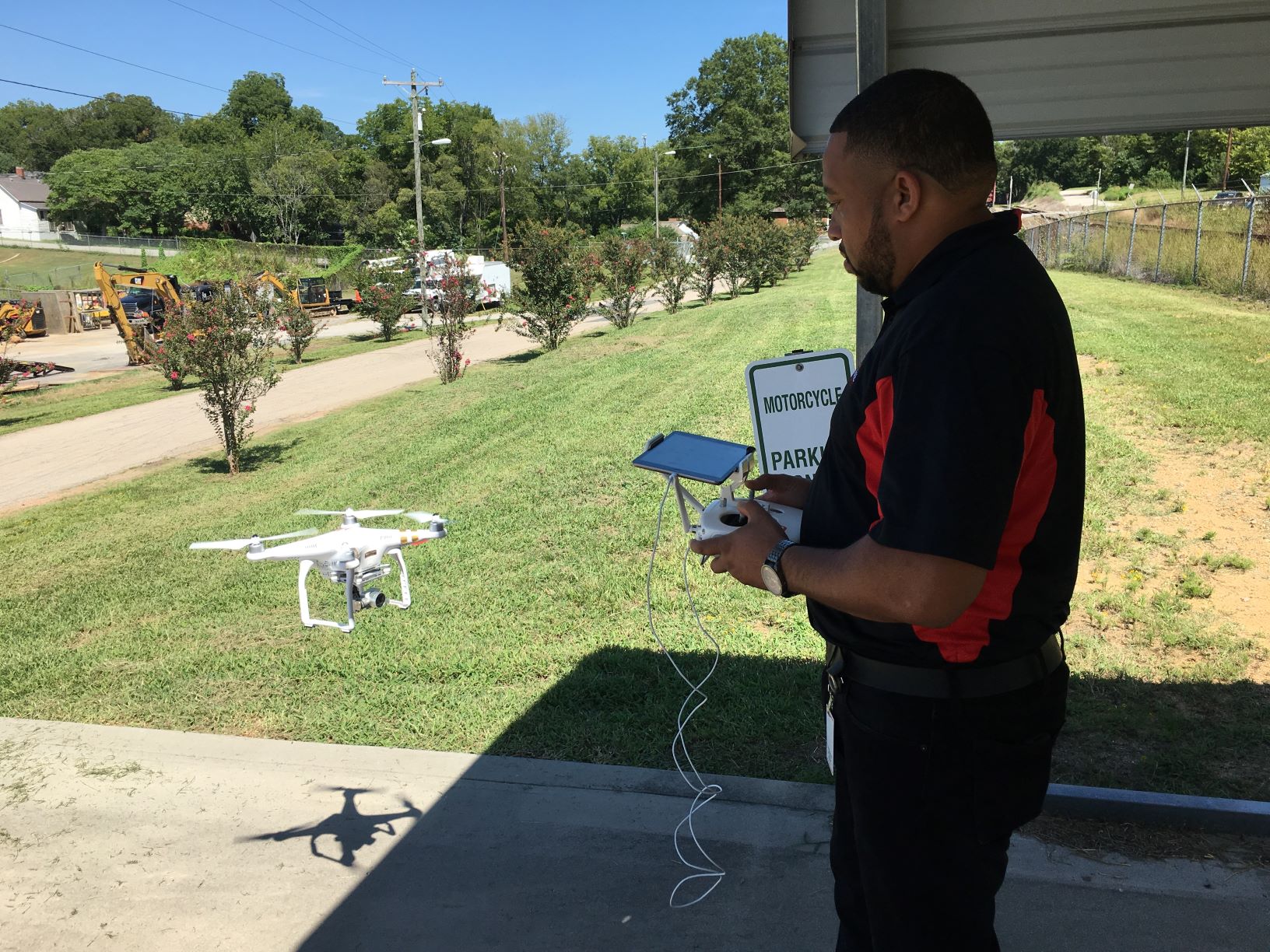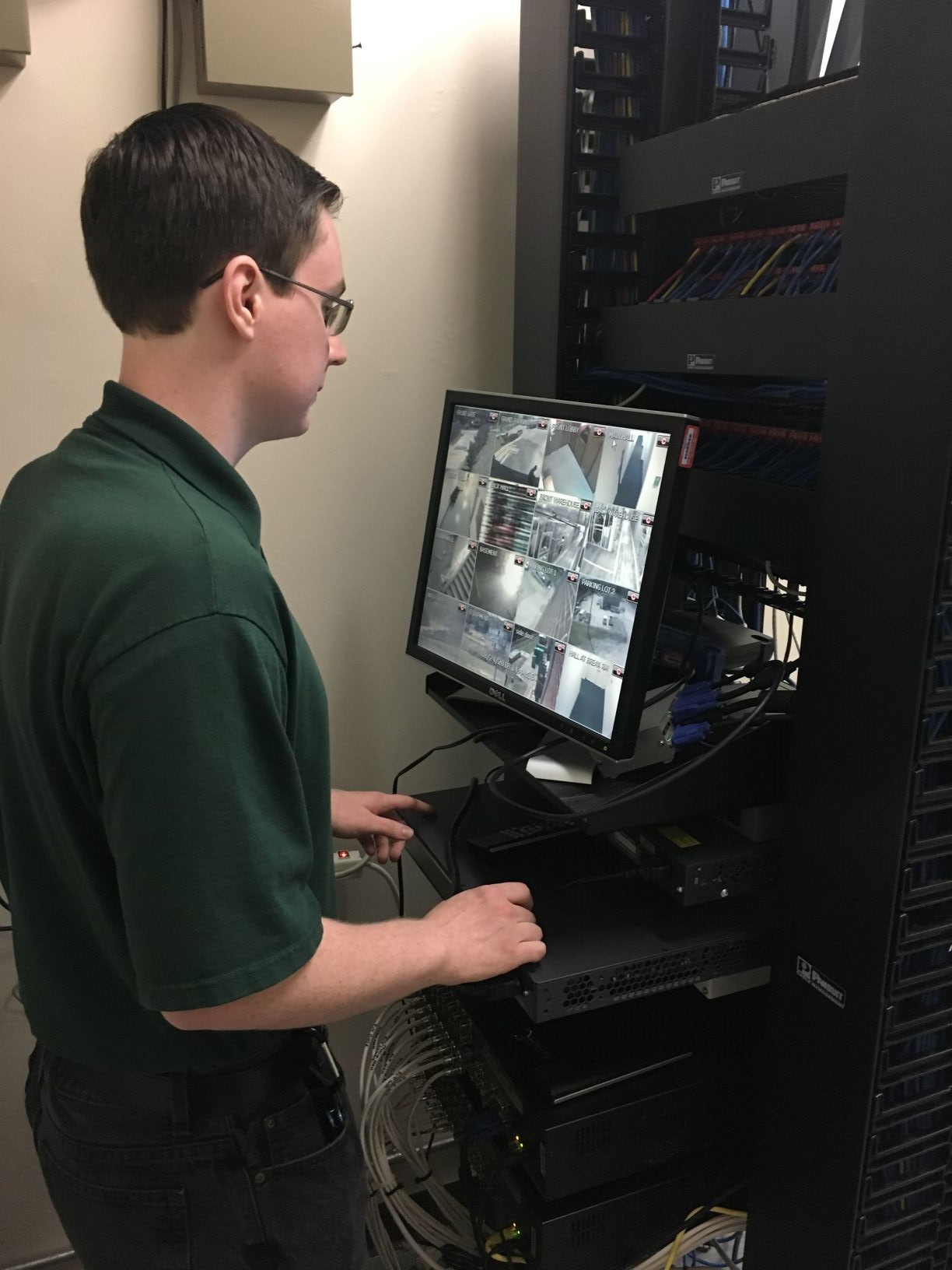Tommy Sunday, director of information technology for the Town of Bluffton, likes to compare a municipal information technology department to a duck on a pond.

(From left) Steve Malphrus, network administrator; Ryan Coleman, geographic information system manager; Tommy Sunday, director of technology; Joni Graybill, software support analyst; and Robert Charles, system support analyst, maintain information technology for the Town of Bluffton.
Photo: Town of Bluffton.
"You see the duck swimming around the pond, and it really doesn't seem like it is doing anything. But if you can look under the water, its legs are kicking as fast as it can go," Sunday said. "We do so much of our work in the background, from installing updates on PCs and servers to monitoring our network for issues within our infrastructure."
That "work in the background" is vital to every department in a city, from pulling digital footage from in-car police cameras to making sure computers are secure from hackers. And it is work with responsibilities and techniques that change quickly, as technology continues its rapid evolution.
"With technology jobs, usually you do not have a set schedule. You have priorities for each day, but you have to be able to adjust to the needs for each day," Sunday said. "We support all departments within our town, including the police department. So most days bring different issues, from simple requests of resetting passwords or helping end users with various software support to more complex issues related to our network infrastructure or servers that house different software or programs the town utilizes."
It's a job that has changed drastically over the years, according to Jarvis Driggers, who has served as the director of IT for the City of Lancaster for 13 years.

Jarvis Driggers, director of information technology for the City of Lancaster, says the role of an IT director has expanded to include "a little of everything." Photo: City of Lancaster.
"When I started, an IT professional needed to get a program up and running. We knew our needs, and we knew what was needed of us to be successful. Today in the IT profession, we find ourselves doing a little of everything. If it plugs into the wall, it finds its way to IT," Driggers said.
Planning for the unpredictable
"I always tell my counterparts in the private sector that there is nothing like IT in government," said Driggers. "We're out and about and mingling. Some days I'm crawling under a police car. The goal of our job is problem solving, and there are so many things you have to have basic knowledge of."
The work can be challenging. Technology changes quickly, and municipalities, working within fiscally prudent budgets, strive to stay current.
"A lot of times it's a challenge to get council members or a mayor to see the importance of IT. It can be hard for them to throw money into something they can't see. A server, a firewall, something that secures the data of our residents," Driggers said.
It also can be difficult to produce long-range plans and budgets that look five or 10 years down the road, since it's hard to anticipate what the technology needs will be in the future.
In the Town of Fort Mill, Jason Thomton started in an intern position that turned into a full-time job in 2011. He ended up taking over all of the tech responsibilities for the town. For the past year, Thomton has been heading up the technology needs of the police department, handling projects such as in-car tablets and body-worn cameras.

Jason Thomton, the Town of Fort Mill's IT director, keeps cyber security on the top of his mind.
Photo: Town of Fort Mill.
He said his biggest worry as the IT director in Fort Mill is security — making sure information is protected. Thomton said it's also a challenge to keep up with the latest technology when the department is focused on day-to-day projects.
Pro tip: Don't stop learning
So what does it take to be a strong IT professional? Technical knowledge, of course, is important, especially when dealing with security issues. IT managers say they never stop learning, both on the job and by taking classes and obtaining certifications in all sorts of areas. For example, Tommy Sunday of Bluffton said in the past two years, he has taken classes and earned certification from the University of Arkansas Criminal Justice Institute in cyberterrorism and completed a course about municipal government IT from the University of North Carolina at Chapel Hill's School of Government.

Marcus Cureton, GIS coordinator for the City of Lancaster, tests out drone technology.
Photo: City of Lancaster.
"Problem solving and communication are key," Thomton said. "So is the ability to talk to all sides and skill sets and make sure everyone is on the same page. You also can't be hesitant to try new things and possibly have them not go right."
IT managers cite problem solving, customer service and project management high on their list of must-have skills.
"I have always joked that with technology, we can find out how to solve a problem or deal with a technical issue, but customer service is something that can be hard to teach," Sunday said.
"You need to want to give that service. Truly, with IT you are performing this service every day. It can be to an internal end user, working with an outside vendor to complete a project or providing services or answers to residents or visitors."
To make life better
It can be easy to get so involved in the technology that the person-to-person aspect of the work becomes secondary. Yet IT directors understand the true purpose of their jobs — to make life better and easier for employees and residents.
"The main thing I love about my job is the direct impact I make on the community. There's nothing more rewarding than to have that direct impact," Driggers said. "When you make an app that could help a child who is lost at an event or help the fire department get to a call 30 seconds quicker, that's what makes it fun."

Jeremy Hirtle, IT technician, monitors the city's facilities. Photo: City of Lancaster.
The "Day in the Life" series gives an insider's look at the professions that make South Carolina's cities and towns great places to live, work and play. Municipal employees from around the state explain their role, discuss their challenges and share stories from the unique world of municipal government service.
